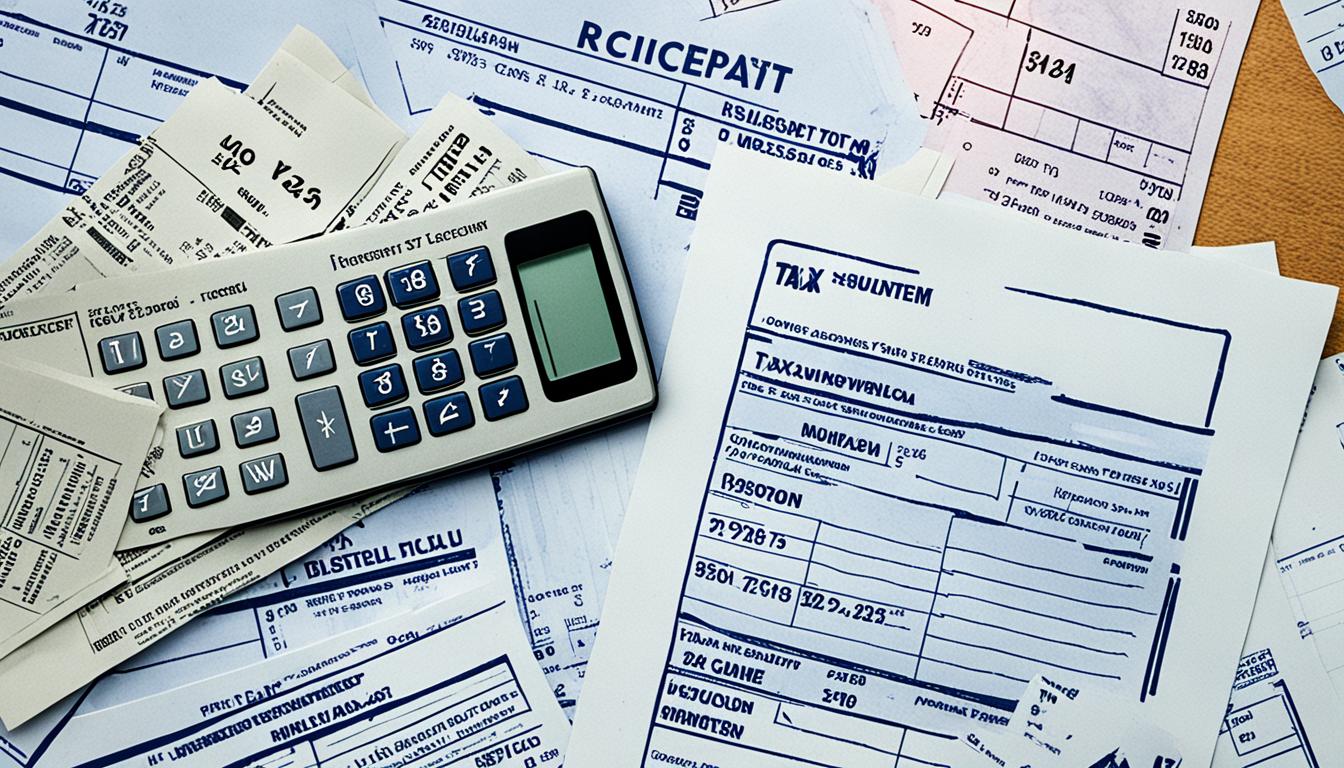Have you ever wandered through the halls of a museum, admiring breathtaking works of art, and wondered if there’s a way to turn this cultural experience into a tax deduction? Well, you’re not alone. Many artists, writers, historians, and other creative professionals find inspiration and research material in museums and art galleries. But can you actually claim museum tickets as a deductible expense on your taxes? Let’s explore the guidelines and rules set by the IRS to find out.
Key Takeaways:
- To qualify for a museum ticket tax deduction, the expense must serve a clear business purpose in your line of work.
- Museum ticket deductions are available for professionals such as artists, writers, historians, and art appraisers who need to visit museums for research or professional development.
- If you make charitable donations to museums, they may also be tax-deductible, but the museum must meet IRS requirements for accepting tax-deductible contributions.
- Proper documentation, including receipts and records, is crucial when claiming museum ticket expenses or charitable donations on your taxes.
- Consult with a tax professional to ensure compliance with IRS regulations and maximize your tax benefits.
Now, let’s dive deeper into the details of deducting museum tickets as a business expense.
Deductible Expenses for Museums
If you visit museums or art galleries for business purposes, you’re in luck! The IRS allows individuals in certain professions to claim museum tickets as a tax deduction.
Who qualifies? Artists, illustrators, sculptors, writers, historians, connoisseurs, and art appraisers are among the lucky few who can deduct the cost of museum tickets as a business expense.
But before you go on a museum-hopping spree, there are a few criteria to meet. The expense must be both ordinary and necessary for your line of work. In other words, visiting museums or art galleries should directly relate to your research and professional development.
| Professions Eligible for Museum Ticket Tax Deduction |
|---|
| Artists |
| Illustrators |
| Sculptors |
| Writers |
| Historians |
| Connoisseurs |
| Art Appraisers |
To ensure your deduction is valid, it’s crucial to keep proper records and receipts. These documents will substantiate your claims when filing your taxes.
So go ahead and embrace your love for museums! Not only do you get to enjoy the beauty of art, history, and culture, but you can also get a tax write-off for your museum adventures.
Guidelines for Claiming Museum Ticket Expenses
When it comes to claiming museum ticket expenses on your taxes, it’s important to understand the guidelines set by the IRS. Meeting these guidelines can help you take advantage of the tax benefits for visiting museums while avoiding any potential complications. Here are the key things to keep in mind:
1. Directly Related to Your Business
To qualify for a tax deduction, your museum ticket expenses must have a clear business purpose. The IRS requires that the expense is directly related to your profession or line of work. This means that visiting a museum or art gallery should serve a purpose such as research, studying techniques, or gaining inspiration for your creative projects.
2. Documentation and Receipts
To support your deduction, it’s crucial to keep detailed records of your museum visits and maintain proper documentation like receipts. These records should clearly demonstrate the business purpose of your visit, including the date, museum name, and the specific research or inspiration you sought. The more detailed and organized your documentation, the easier it will be to substantiate your deduction if audited by the IRS.
3. Eligible Professions
While everyone can enjoy the benefits of visiting museums, not all professions are eligible for tax deductions on museum ticket expenses. The IRS typically allows specific professions in the creative industry to claim this deduction. Artists, writers, historians, art appraisers, and other self-employed professionals engaged in creative endeavors are among those who may qualify for the tax benefit. Casual hobbyists or regular visitors may not be eligible for this deduction.
By understanding these guidelines, you can confidently claim your museum ticket expenses as a deduction on your taxes. Remember to consult with a tax professional or financial advisor for personalized advice based on your specific circumstances.
Visiting museums can not only enrich your cultural experience but also provide potential tax benefits for certain professions. Keep these guidelines in mind to maximize your deductions and enjoy the tax advantages of exploring the art and history offered by museums.
Charitable Donations to Museums
Did you know that your generous contributions to museums can potentially offer you tax benefits? When you donate to museums, you may be eligible for a tax deduction, but it’s important to understand the specific requirements to claim this benefit.
The first criterion for a tax-deductible donation is that the museum must meet the IRS’s criteria for accepting tax-deductible contributions. Typically, this involves the museum being set up as a not-for-profit foundation. By supporting these organizations, you not only contribute to the preservation of art and culture but also may reduce your taxable income.
When making a charitable donation, proper record-keeping is crucial. Keep documentation of your donations, including receipts and any acknowledgment letters from the museum. This documentation will be essential when you file your taxes and claim the deduction.
The amount of the deduction you can claim will depend on the value of your donation. It’s worth noting that if you receive any benefits in return for your donation, such as free museum memberships or event tickets, the value of those benefits may reduce the deductible amount. However, the tax benefits of contributing to the arts can still be significant.
To ensure you meet all the necessary criteria and maximize your tax benefits, it’s highly recommended to consult with a financial advisor or tax professional. They can provide guidance tailored to your specific situation and help you make the most of your charitable donations while complying with IRS regulations.
Tax Deduction Guidelines for Charitable Donations
| Donation Amount | Tax Deduction |
|---|---|
| Less than $250 | No documentation required, but keep records for your own reference. |
| $250 or more | Written acknowledgment from the museum and detailed documentation required. |
| $500 or more | IRS Form 8283 with your tax return and appraisal documentation (for non-cash donations) required. |
| Over $5,000 | Qualified appraisal and IRS Form 8283 Section B with your tax return required. |
By supporting museums through charitable donations, not only do you contribute to the enrichment of society, but you may also enjoy tax benefits. Remember to follow the IRS guidelines, keep proper records, and consult with a professional to make the most of your philanthropic efforts.

Understanding the Tax Deduction Process
When it comes to claiming a tax deduction for museum tickets or charitable donations, it’s important to have a solid understanding of the process and follow the rules set by the IRS. To ensure a successful deduction, you must carefully document your expenses or donations, retain receipts and records, and ensure that your deductions meet the necessary criteria.
If you’re looking to deduct museum ticket expenses, it’s crucial to keep detailed records of the business purposes behind your visits and their direct relationship to your profession. This information will help establish the validity of your deduction and provide support if the IRS ever requests further documentation.
Additionally, if you plan to make charitable donations to museums, it’s essential to confirm that the museum qualifies as a tax-exempt organization. This means the museum must meet the IRS’s criteria for accepting tax-deductible contributions. Check their status beforehand to ensure that your donation qualifies for a deduction.
To make the most of your deductions and ensure compliance with IRS guidelines, it’s advisable to consult with a tax professional. They can provide expert guidance, ensure that your deductions are in line with IRS regulations, and help you navigate any complex issues that may arise. By following the tax deduction process correctly, you can maximize your eligible deductions and enjoy the benefits provided by the IRS rules on museum ticket deduction.








